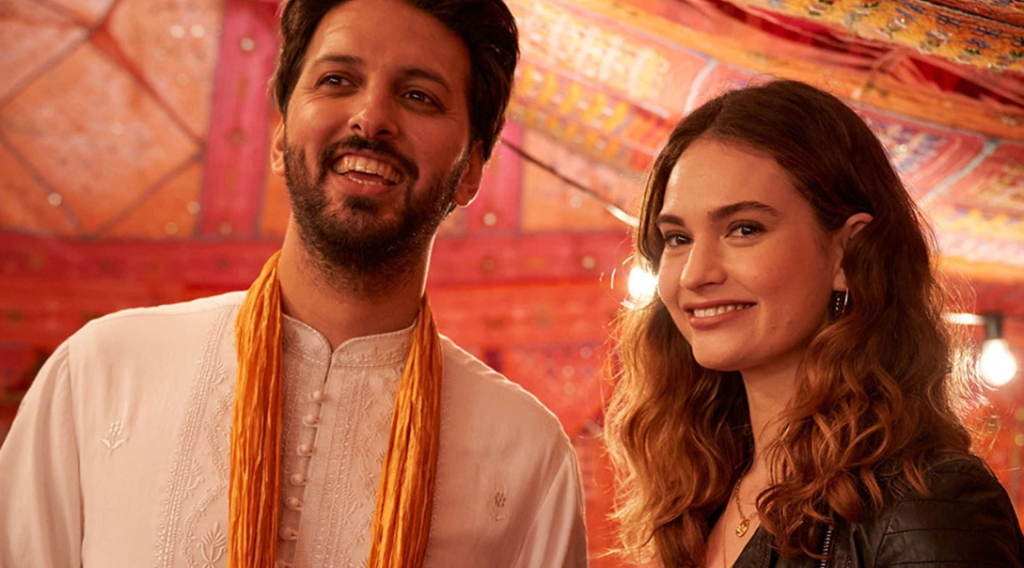
It has been more than a decade since Shekhar Kapur last appeared in the British film industry, with his last feature being the 2007 Elizabeth sequel, The Golden Age, which was widely criticized. However, Kapur’s return with What’s Love Got to do With It? is reminiscent of a bygone era, reviving the lush rom coms that were popularized by Richard Curtis in the nineties. Although Curtis is not involved in this film, the leafy London setting, middle-class sensibilities, and familiar narrative are all present, with the only missing aspect being Curtis’ trademark plummy clichés.
However, Kapur’s latest work diverges from the mold of Notting Hill and Four Weddings in one aspect. The film is written by Jemima Khan, who brings her own experiences to explore the parameters of love beyond white and western cultures. Lily James stars as Zoe, a documentary filmmaker who tackles hard-hitting subjects that receive critical acclaim but fail to meet the financial demands of her backers. This may explain why she lives on a giant barge, but at least she can afford fairy lights.
Kaz, a Muslim bachelor and lifelong friend and neighbor of Zoe, is played by Shazad Latif. When Kaz announces his intention to pursue an arranged marriage as a way to find love, Zoe’s interest as a director is piqued. However, this challenges her understanding of her best friend and her own morality, even with the updated term “assisted” marriage. In order to secure funding from her producers, Zoe promises to make a film called “Love, Contractually”. Kaz initially resists but eventually allows Zoe to follow him from the awkward profiling session to a gorgeous wedding ceremony in Lahore, Pakistan.
The film is competently made and easy to watch, but its lack of comedic skill behind the scenes is evident. The movie often feels like a repurposed dramedy, and its broader strokes undermine the stronger moments of nuance. Emma Thompson and Shabana Azmi deliver contrasting performances as Zoe and Kaz’s respective mothers. Azmi’s subtle and organically funny performance channels a wealth of lived experience, while Thompson’s outlandish Cath is a crass and patronizing caricature. Although Thompson’s caliber as an actor allows her to nail the occasional comic line, most of her work in the film is tired and irksome.
The film’s globetrotting ambition is held back by a tonal imbalance. While the taboo concept of modern day arranged marriage is refreshingly approached, the ultimate message lacks profundity – love is complicated and there’s no right way to find it. Kaz and Zoe’s conversational dynamic has a familiar feel, reminiscent of a blunted Harry and Sally, with their chemistry never quite igniting. The final act does elicit genuine emotional interaction, but it’s telling that it comes from an outlier rather than the central couple.
Despite this, James and Latif are enjoyable to watch, with enough gumption and spunk to avoid being overly saccharine. As the ensemble around them grows, the reminder that family is everything becomes more resonant. Love isn’t just about romance, chocolate boxes, or roses – it’s the deep-rooted connections that cross continents, weather storms, and hold us together as one.
